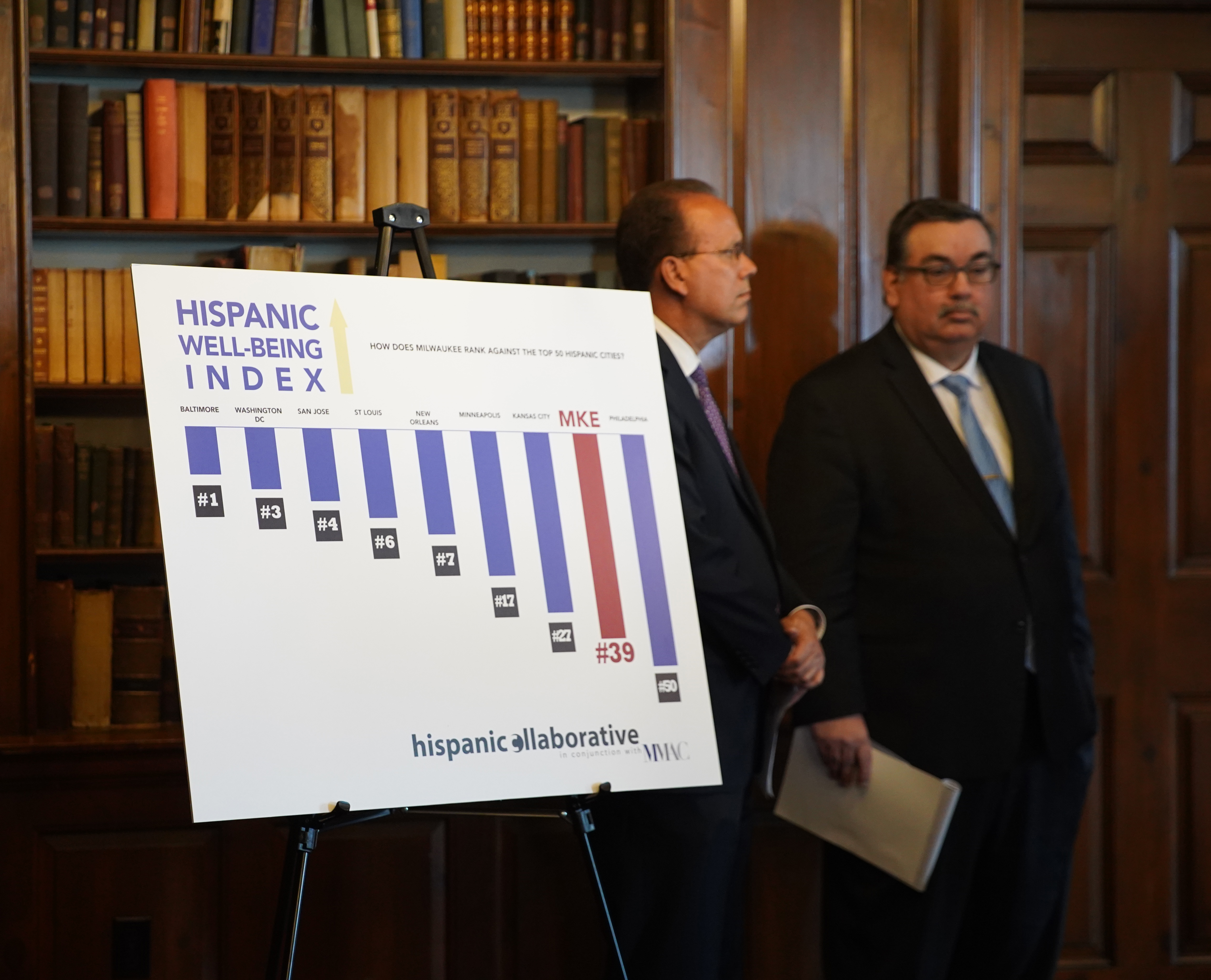 When the Greater Milwaukee Foundation released its Latino Milwaukee study in 2016, it painted a portrait of the community familiar to many area Latino leaders — both in terms of bright spots and persistent disparities.
When the Greater Milwaukee Foundation released its Latino Milwaukee study in 2016, it painted a portrait of the community familiar to many area Latino leaders — both in terms of bright spots and persistent disparities.
It also mobilized the Hispanic community in a way that had not happened before, eventually leading to a new, data-driven initiative called the Hispanic Collaborative, which is geared toward propelling Milwaukee into the top 10 cities for Hispanics nationwide.
“Without the initial study and subsequent funding provided by the Foundation, we would not have gotten as far as we have, as quickly as we have,” said Darryl Morin, a member of the collaborative.
More than 300 people since have rallied around the effort, which Executive Director Nancy Hernandez said aims to coordinate and align the many resources that already exist toward a shared vision of economic prosperity.
After the Foundation had convened 100 leaders in 2018 to take stock of the study’s findings, participants wanted to dig deeper, Hernandez said. The Foundation supported additional research that led to the Hispanic Well-Being Index, which found that Milwaukee ranked 39th out of 50 metro areas for Hispanics.
Further analysis identified three areas the region needed to concentrate on to break into the top 10: increasing household income, boosting entrepreneurship and increasing civic participation. As those areas fell under the umbrella of economic prosperity, it made sense to partner with an entity like Metropolitan Milwaukee Association of Commerce, Hernandez said. The Foundation provided $300,000 in startup funding.
Community working groups will select measurements to track progress, align resources and develop strategies to make improvements in each area.
While Milwaukee will not reach the top 10 overnight, organizers have noted early successes such as broad support and participation from different sectors and the community at large. Conversations made through the collaborative have already led to a Latino workforce development summit.
“The ingredients are here for a community that is more prosperous,” said Jose Olivieri, a Foundation donor and former Board chair.